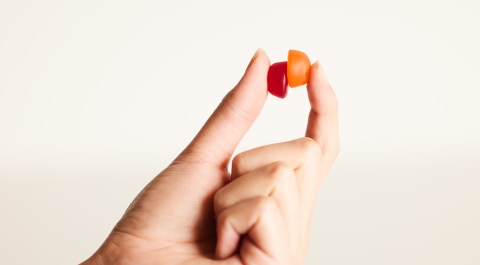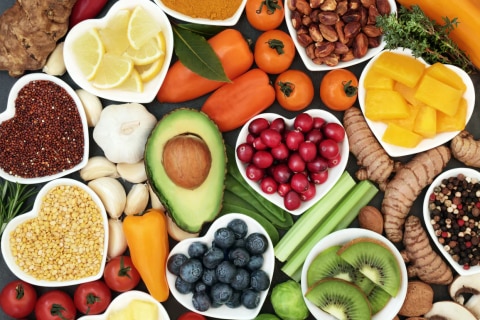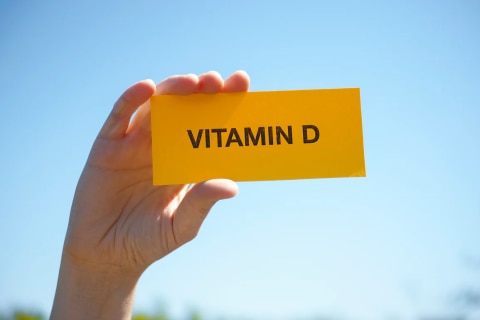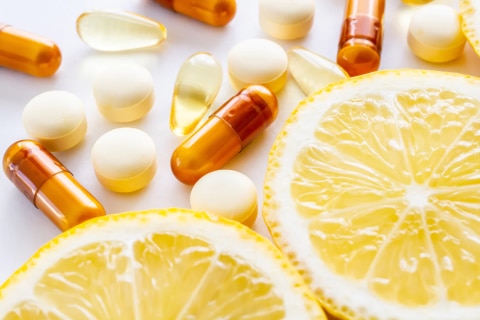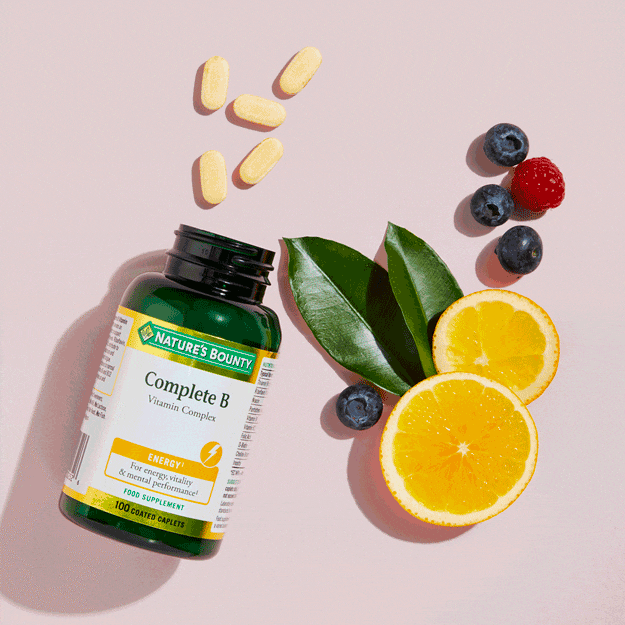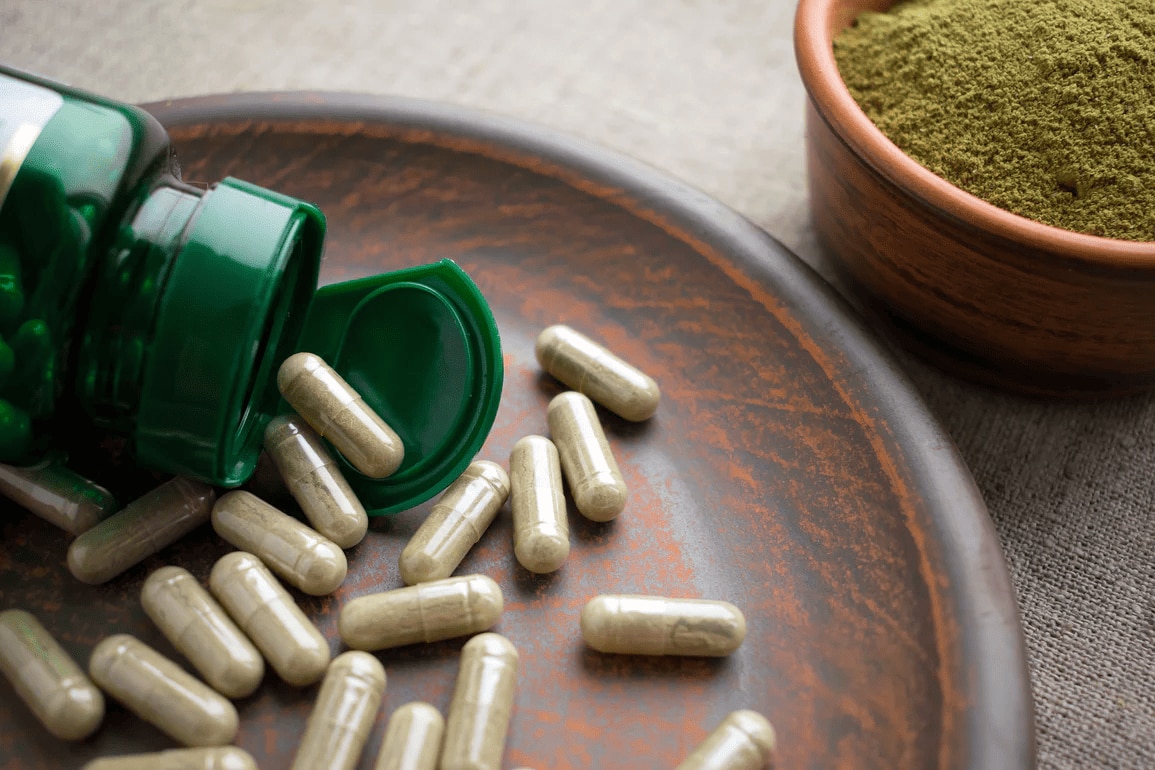
Top 3 Supplements for Vegans
Whether you’re a veteran or just starting out as a vegan or vegetarian, there are some supplements that can help fill any gaps for nutrients that may be lacking in your diet. These include nutrients such as vitamin B12, iodine, and vitamin D.
- Vitamin B12
Because vitamin B12 does not naturally occur in any plant foods, it’s important that people following a vegan diet obtain adequate amounts through fortified foods and supplementation. What’s more is that a lack of B12 in the diet may not show up for several years after switching to a vegan diet.
However, vitamin B12 is needed for normal energy production and functioning of the nervous system.1,2 Vitamin B12 deficiency can lead to a wide range of symptoms including lack of energy, extreme fatigue and sensations such as numbness, tingling among others.3
Our vegan Complete B supplement provides 25 mcg of vitamin B12 as well as other complementary B vitamins to support mental and physical energy levels.1, 2, 4
- Iodine
Iodine is not found in sufficient amounts in most plants with the exception of seaweed. In the UK, salt is also not iodized. So it can be difficult for vegans to obtain enough of the nutrient, as a reliance on plant-based foods could lead to failing to meet recommendations of this nutrient.
Iodine is regarded as essential because it contributes to the normal production of thyroid hormones and normal thyroid function. It is also required for normal energy production, as well as nervous system and cognitive function.5, 6
The failure to obtain enough iodine in vegans raises serious concerns. In fact, research that reviewed the iodine status in 127,094 adults in industrialized countries found that vegans had the lowest average levels followed by vegetarians.7
For this reason, plant-based milk alternatives are starting to be more commonly fortified with iodine. Historically, cow’s milk has been a major contributor to iodine intake in adults and children. Not all plant-based milk alternatives contain iodine so remember to check the label.
Our vegan-friendly Full Spectrum Multivitamin & Mineral provides 26 vitamins and minerals including 150µg of iodine, which is a 100% of the daily recommended amount.
Already most of us are not obtaining enough vitamin D in our diets, so vegans are no exception and may need to supplement to avoid a low vitamin D status.
Vitamin D is often called the “sunshine vitamin” because it’s made in our skin upon exposure to the sun’s ultraviolet rays and is one of four fat-soluble vitamins needed by the body. Vitamin D is essential for the absorption of calcium for healthy bones and teeth and also supports a healthy immune system.8, 9
Whilst vitamin D is primarily found in animal foods such as eggs and oily fish, those following a vegan diet have not been found to be at any greater risk of deficiency compared to non-vegans.10 When looking at the entire population, however, , approximately 1 in 5 people have low vitamin D levels.11 This is for two reasons: first, the amount of vitamin D in foods is very low and second, the best time in the UK to make vitamin D is from safe unprotected sun exposure in the spring and summer months. This leaves us all at risk of deficiency in the autumn and winter as the sun’s ultraviolet rays are not strong enough to stimulate vitamin D production during this time.
This is why the The Scientific Advisory Committee on Nutrition (SACN) recommends that the UK population* should consider taking a vitamin D supplement during the autumn and winter months.12
Vitamin D is found in two different forms: Vitamin D2 (ergocalciferol) and vitamin D3 (cholecalciferol). Vitamin D2 is found primarily in mushrooms grown under extra UV light. Vitamin D3 is found in egg yolks, liver or oily fish. Vitamin D3 tends to be the preferred form as it is more potent and bioavailable, so it gets to work faster in your body.13
Vitamin D plays many critical roles in the body, so it’s important to make sure you are getting enough. Nature’s Bounty Vitamin D Gummies are suitable for vegans, great tasting strawberry splash flavour and also provide vitamin D as D3 from an algae source.
Disclaimer:
Food supplements should not be used instead of a varied balanced diet and a healthy lifestyle
References:
- EFSA Health Claim: Vitamin B12 contributes to normal functioning of the nervous system
- EFSA Health Claim: Vitamin B12 contributes to normal energy-yielding metabolism
- https://www.nhs.uk/conditions/vitamin-b12-or-folate-deficiency-anaemia/symptoms/
- EFSA Health Claim: Pantothenic acid contributes to normal mental performance
- EFSA Health Claim: Iodine contributes to normal energy-yielding metabolism
- EFSA Health Claim: Iodine contributes to the normal production of thyroid hormones and normal thyroid function
- Eveleigh ER, Coneyworth LJ, Avery A, Welham SJM. Vegans, Vegetarians, and Omnivores: How Does Dietary Choice Influence Iodine Intake? A Systematic Review. Nutrients. 2020 May 29;12(6):1606.
- EFSA Health Claim: Vitamin D contributes to the maintenance of normal bones and teeth and to normal absorption/utilisation of calcium and phosphorus,
- EFSA Health Claim: Vitamin D contributes to the normal function of the immune system
- Chan J, Jaceldo-Siegl K, Fraser GE. Serum 25-hydroxyvitamin D status of vegetarians, partial vegetarians, and nonvegetarians: the Adventist Health Study-2. Am J Clin Nutr. 2009;89(5):1686S-1692S. doi:10.3945/ajcn.2009.26736X
- New advice on vitamin D. British Nutrition Foundation. https://www.nutrition.org.uk/nutritioninthenews/new-reports/983-newvitamind.html
- Scientific Advisory Committee on Nutrition. SACN vitamin D and health report. UK government; 2016.
- Heaney RP, Recker RR, Grote J, Horst RL, Armas LAG. Vitamin D3 is more potent than vitamin D2 in humans. J Clin Endocrinol Metab. Published online 2011.
* (excluding formula fed babies under the age of one)
Don't keep all the good info to yourself.
Share this with friends!
Explore more blogs:
